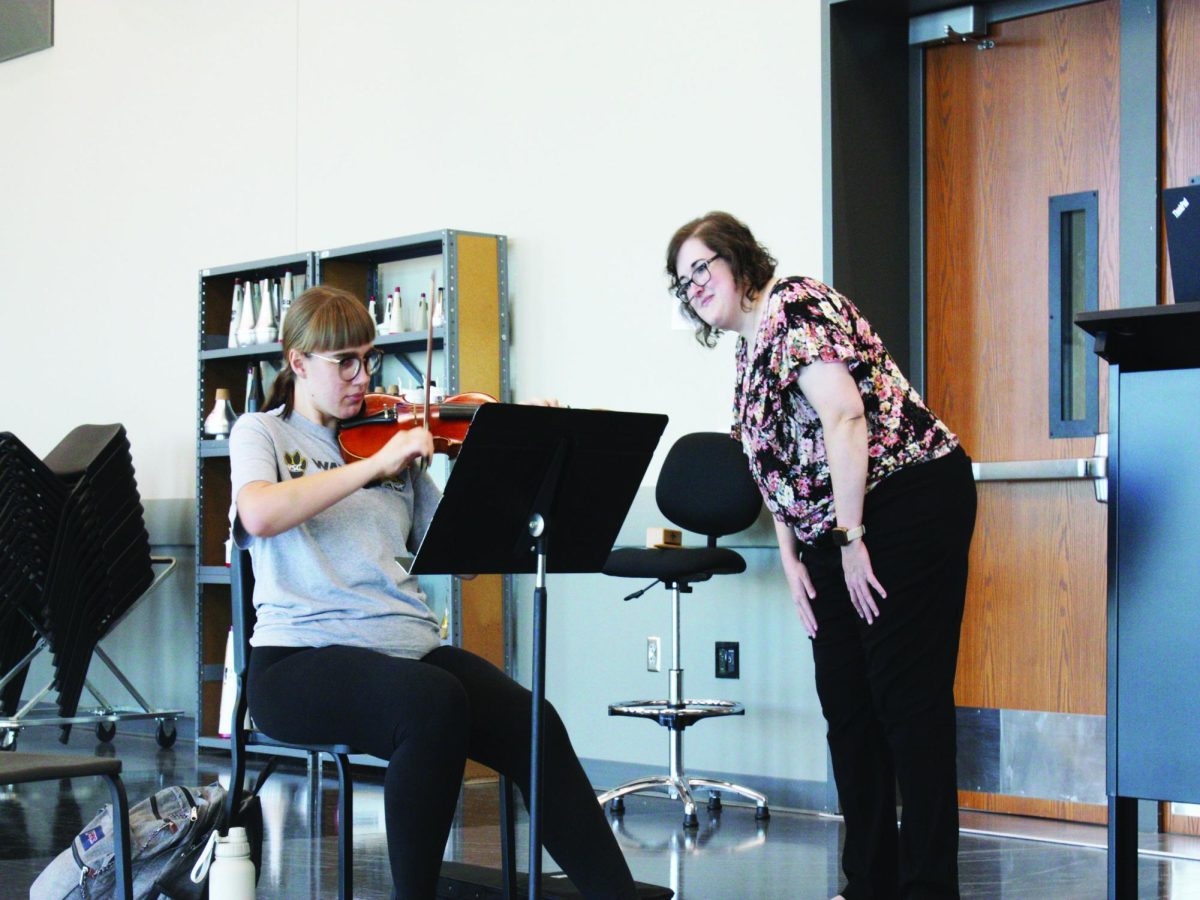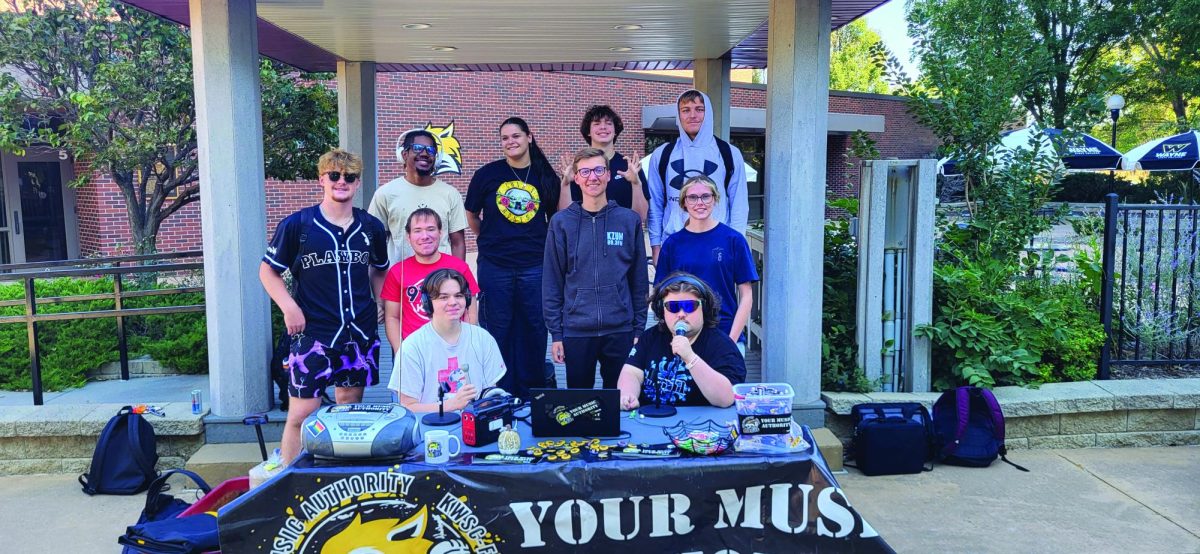Gender, autism are topics among Honors Colloquium presentations
Brandy Held speaks about water located in Nebraska for her presentation during the Honors Colloquium. She concentrated on the resources of groundwater being depleted by the agriculture industry.
December 9, 2015
Honors Program seniors are presenting their Honors Colloquium projects this week.
Six students presented their research in Connell Hall between 2:30 and 6 p.m. yesterday (Tuesday). Morgan Sullwold’s presentation was “A Competitive Look at Graphic Design Round II.” Sondra Wellington followed Sullwold with “Performing Arts & the Young Child.” Brandy Held’s presentation was called “Liquid Gold, Water in 21st Century Nebraska,” and Jana Punelli’s was “The Impact of Religion on Cultural Norms Influencing Fertility in Ghana, Burkina Faso and Nigeria.”
Zachary Kunz spoke about “A Comparative Study of Sensory Interpretation Technologies in Autonomous Robots.” Lastly, Megan Tomasiewicz’s presentation put WSC in the spotlight with “Wayne State College Stories.”
The presentations continue today. The first one starts at 2:30 p.m. in Connell Hall room 131 with Lindsey Milburn and her presentation, “Are Men Really from Mars and Women from Venus? Gender Differences in the Workplace.” After Milburn kicks it off, Stephanie Westerhaus gives her colloquium “Effectively Understanding and Reaching Students with Autism in the Music Classroom.”
Brandon Reese is scheduled to speak about “Development of a Preference Elicitation Application and Accompanying User Interfaces: A Pairwise Comparison Example.” “The Effect of Social Media on Depression in the Elderly” will be given by Brianna Kucera, and finally Matthew Ostry will speak on “Tractor Pulls in Nebraska.”
Upon entering the Honors Program, students have the option of choosing honors or high honors in their major. If the students choose high honors in their major, they are expected to complete two projects, usually one in their junior year and one in their senior year.
The projects are meant to help students learn more about their academic discipline outside of the classroom. Students are required to choose a specific topic about something they are interested in within their major. At the end of each semester, the students present their projects to the campus, and sometimes at national conferences.








